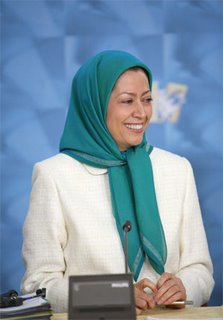Analysis: Syria still holds the key - 33rd anniversary of the fourth Arab-Israeli Middle East war

Analysis: Syria still holds the key
By Claude Salhani
UPI International Editor
Oct. 6, 2006 at 7:00AM
This Friday, Oct. 6, marks the 33rd anniversary of the fourth Arab-Israeli Middle East war; four wars fought in as many decades. It was also the last time Israel fought more than one Arab army at any one time, and the first time the Israeli army was caught unawares, giving the attackers the upper hand, albeit temporarily.
The Egyptian and Syrian military managed to maintain absolute secrecy during meticulous preparation leading up to the surprise attack on Israel, which at the time occupied all of the Sinai Peninsula and faced the Egyptians across the Suez Canal behind the heavily fortified bunkers and trenches of the Bar Lev Line. The Israelis believed the Bar Lev Line was impregnable, thanks to its formidable fortifications. But the Egyptians simply threw men into the battle in such large numbers that the Israeli machine-gunners couldn't kill them fast enough. Their guns overheated and jammed and the surviving Egyptians made it through the defenses and captured the Bar Lev Line.
Indeed, on that Oct. 6, in 1973, Israel faced the two largest and most powerful Arab armies at the time -- Egypt and Syria -- fighting them on multiple fronts for 18 grueling days.
Iraq had also sent a contingent, but given the high level of mistrust that existed between the Syrian and Iraqi Baath parties, Damascus refused to house larger numbers of armed Iraqi troops in and around Damascus.
The war lasted 18 days and in reality ended in a stalemate, although the Israelis felt demoralized and the Arabs claimed victory. It was a situation not dissimilar to the recent conflict between Israel and Lebanon's Hezbollah.
The October War, as it was called in the Arab world -- Harb October or Harb Teshrin -- was a turning point in the Middle East conflict. The bittersweet victory gave the Arabs back their dignity and honor after losing it so disastrously in June 1967. It showed them that Israel could be fought, that it wasn't this superpower it projected itself to be after the June Six-Day War. At the same time, it also showed the Arabs that while Israel could be fought, it could not be defeated.
On the Israeli side, the October War -- or the Yom Kippur War -- allowed a harsh reality to sink in; and that was that Israel could be defeated.
Egyptian President Anwar Sadat, who had reclaimed Egypt's honor -- albeit at the cost of much Egyptian blood -- was now ready to discuss peace with the Israelis. Israel, thanks to a last-hour maneuver by Ariel Sharon, who managed to re-cross the Suez Canal and encircle the Third Egyptian Army a mere 60 miles from Cairo, was also ready to talk peace with the Egyptians.
The hang-up was the Syrians. President Hafez Assad, father of the current leader, had hoped to reclaim the strategic Golan Heights which Israel had captured from Syria in 1967. Syrian forces fought valiantly for every inch of the Golan, but were pushed back by Israeli elite brigades.
Thus began Henry Kissinger's legendary shuttle diplomacy: the then secretary of state made no fewer than 36 trips to Damascus in under a month, on some days visiting the Syrian and Israeli capitals twice, as he relayed messages back and forth. Eventually, an agreement was reached in which Egypt was to reclaim the Sinai, and Syria the devastated capital of the Golan, Kuneitra. And the United Nations was to police a ceasefire. Thirty-three years later, the U.N. is still monitoring the "temporary" halt of hostilities, ensuring that peace on the Golan Heights is not shattered.
But if the Syrians have remained silent for 33 years on the Golan, their fingerprints have certainly been found on multiple "action dossiers," according to several foreign intelligence sources. The Syrians, say intelligence sources, have been supporting terrorist groups both in the Middle East and around the world; from backing and arming Lebanon's Hezbollah and radical Palestinian groups, such as Hamas and Islamic Jihad (whom the United States and Israel accuse of terrorism), to allowing foreign jihadi fighters to enter Iraq by crossing through Syria, to interfering in domestic Lebanese politics.
This is Syria's own way of letting the powers-that-be know that they still have unsettled demands: basically that they want the return of the Golan Heights and they want to be included in any ensuing dialogue in the region. Damascus wants the United States to know that they hold the key to the door that will open the way to a permanent settlement of the Middle East crisis. Or, if they feel the need to, they can open the door leading to further chaos. So long as Syria has not reclaimed the Golan, thus at the same time reclaiming some of its honor, the ruling Baath Party will see to it that even if a peace deal is reached between the Palestinians and Israel, no lasting peace will be enjoyed in the Middle East without including Syria in the fold.
As Secretary of State Condoleezza Rice re-launches dialogue with friendly Arab countries, drumming up support for U.S. policy, she should be cognizant of the fact that one should also talk to one's foes if one is serious about peace.
--
(Comments may be sent to Claude@upi.com.)